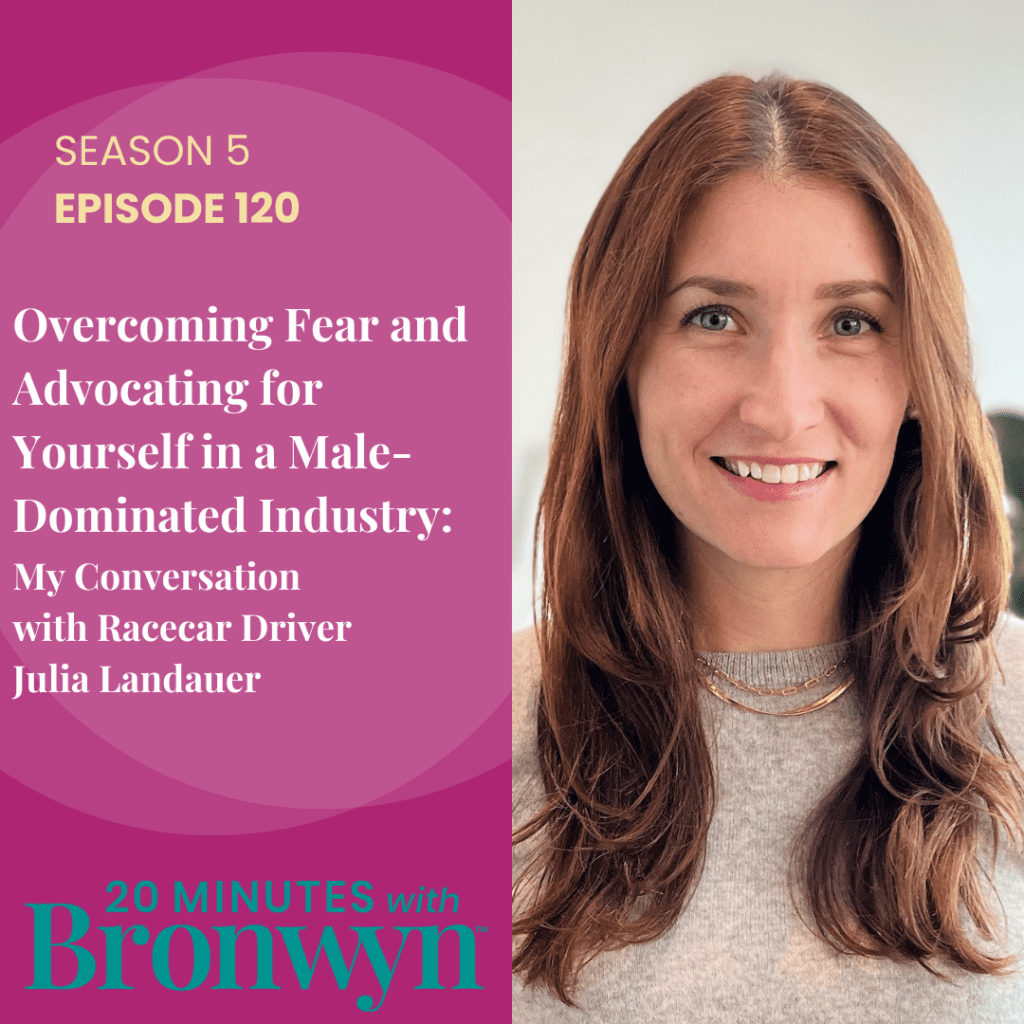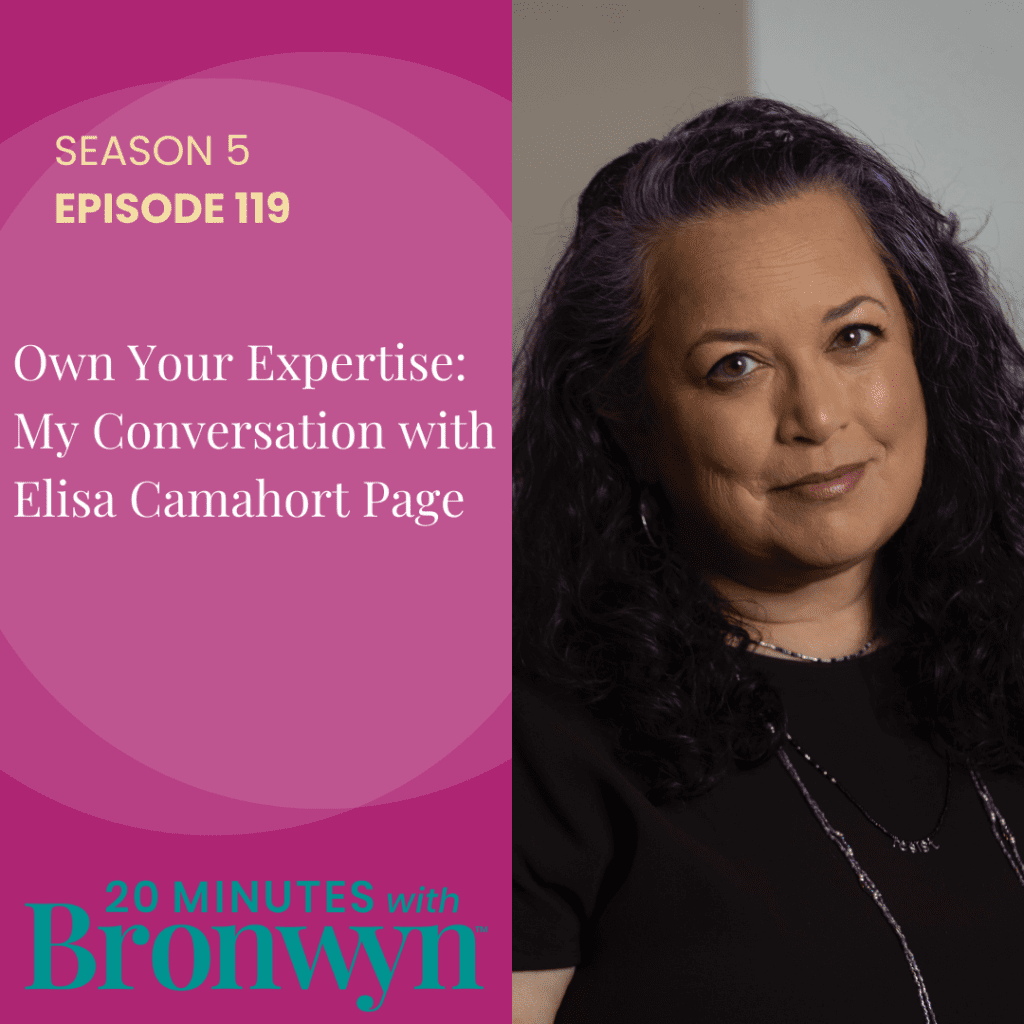Have you ever been on the receiving end of feedback that you are “too much?”
Too what?
Too authentic?
Too passionate?
Too energetic?
And what on earth are you supposed to do with that information?
Behave with less authenticity? Passion? Energy?
As a communication coach, I have worked with confused clients trying to understand this feedback. And as a passionate, enthusiastic, outspoken woman myself, I have also been on the receiving end of this feedback (shout outs to the colleague from 20 years ago who asked if I was on drugs, or if I’m always this happy…)
“You’re Too Much” is not a particularly fun (or actionable) piece of feedback.
Or is it?
Reading Between the Lines
This feedback can be golden if you can identify the reason for the feedback.
Reason #1: People Don’t Feel Seen/Heard in Your Presence
Our deepest desire as human beings is to feel seen and heard. If— in your unbridled enthusiasm, passion and authenticity—you tend to cut people off or ignore their ideas, you probably are too much for them in that moment. If this is resonating for you, now may be the perfect opportunity to work on your listening skills.
Listen Up.
The topic deserves far more words than I’ll offer here, but in the interest of time, here are the four most critical components to listening well.
1 Lose your agenda. When someone is talking, attempt to listen to that person without judgment and without a private agenda. People know when someone is listening to understand, and when someone is listening to manipulate. Does it mean you have to give up on your goals or intentions? Of course not. It is possible to listen with a completely open mind and get your needs met during the conversation. Trust that this is the case, and allow yourself to relax into a state of clear perception.
2 Tune in. Become as present to the moment of conversation as possible, and notice the facial expressions and body language of those around you. When do they lean forward with interest? When do they lean back, as if disconnecting from the conversation? Is there an emotional message behind the words they speak?
3 Show Them You Hear Them. It may sound stupidly simple, but show the speaker that you are listening with your own body language. Keep your facial expression kind and curious. Uncross those arms. If you are hearing something that is weighted with information (emotional or otherwise), paraphrase what you heard. Allow the other person the opportunity to correct your perceptions if need be. Find a way to validate their point of view, even if you don’t agree with it. Phrases like “I can see why you take that position. It makes a lot of sense…” work well here.
4 Take Nothing Personally. I know, easier said than done, right? But if you can commit to simply perceiving the perspectives of another person, without feeling hurt, defensive or angry, chances are you are going to get a much clearer understanding of what is being said. The minute we take something personally we shut down, and as a result, we become terrible listeners.
A bit of good listening goes a long way. Even if you try to incorporate just one of these four tactics, it will dramatically improve the way people experience you (and vice versa).
Reason #2: The Lobster Factor
Once upon a time, a chef placed several lobsters into a giant pot of water to boil, and failed to place a lid over the pot. Her sous-chef noticed the lack of lid, and asked “Aren’t you worried these lobsters will try to climb out?” The chef replied, “Nope. If one tries to escape, the others will pull it back down.”
In other words, sometimes the “You’re too much” feedback isn’t about you at all… it’s about the culture you find yourself in. There are those among us who, through no fault of their own, were fed a steady diet of “lay low, fly below the radar, don’t speak up too much lest you draw criticism.” For those kinds of people, a Technicolor personality is threatening on many levels. You threaten their sense of How It’s Supposed to Work. They’ve worked hard to play by the rules and follow protocol, and you waltz in playing by your own rules and they are NOT having it. After all, if you are allowed to get away with unbridled authenticity, then what the hell was the point of all of their efforts to fit in, lay low, and bite their tongues?
So What’s a Lobster To Do?
First, be very careful to label yourself as an escapee lobster. Always err in favor of doubling down on listening. I’ve seen people dismiss legitimate feedback, because they prefer to cast themselves as the lone, brave lobster, rather than the bad listener.
But, the fact is, sometimes you really are being pulled down to earth for daring to soar too high.
And if this is the case, repeat this mantra:
“My only job in this lifetime is to honor my own sense of integrity, courage, and most of all, love.”
I love this mantra because it forces me to focus on what I can control: acting from a place of personal integrity, courage and a belief that love is the only thing that matters. Repeating this mantra helps me get clear about my own behavior, and the behavior of others.
So the next time you wonder what to do with that “You’re too much!” feedback, check yourself: Am I making that person feel seen and heard?
And then check the culture you’re in: Is it you, or is it them?
And then get back in the game.
Hugs and high fives,
B
















